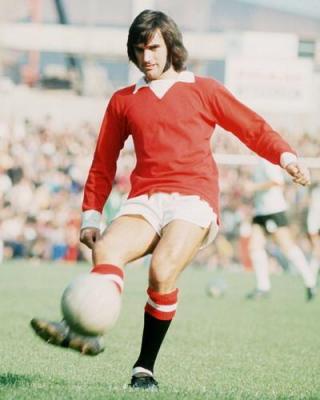The story of footballers, their wives and girlfriends and what they get up to is always news and can have dramatic impact, as the following story illustrates. It is the night before a crucial England World Cup match. An England player has been told stories of his wife’s antics and he is quite frantic to know whether these stories are true.
The next day he plays lets in three goals and England are dumped out of the World Cup.
The player concerned was Peter Bonetti, then No 2 England goalkeeper to the great Gordon Banks. The match was the quarter-final against West Germany in Leon in the 1970 World Cup. Banks could not play, as he had food poisoning, and Bonetti deputised.
But he played so badly that England, leading 2-0, lost the match 3-2. Bonetti was certainly responsible for two if not all three of the goals, one of them a daisy-cutter from Franz Beckenbauer that even the great Kaiser thought would not beat the England goalkeeper. Germany beat England for the first time. The English defeat was even more difficult to take as England had gone to Mexico with a team which was widely seen as better than the one that won the World Cup in 1966.
The defeat was traumatic and its effects were felt beyond football. After a beaten England left Leon they did not play in a World Cup for 12 years and, four days after the defeat, Harold Wilson’s Labour party surprisingly lost the 1970 election. Richard Crossman, a member of Wilson’s Cabinet, had no doubts that the defeat in Leon contributed to the election defeat.
Brian James, then our leading football writer, was there and recalls, “All sort of stories were flying around, in particular, about Frances, Peter’s wife. She was very pretty and used to come on in a very friendly way to everyone. I do not know whether these stories were true but I do know that, the night before the match, Peter was very upset on hearing these stories and frantically trying to find out where his wife was.
“Also what is true is the local Mexican press were trying to snare English wives with local lads and create stories to embarrass the England team. This may have been the start of these stories about Frances Bonetti. Peter was certainly not in a fit mental state to play in such an important match.”
Sometime later, when England were playing in Malta and there was the question of English wives being present in the same team hotel as their husbands, Sir Alf Ramsey, the England manager, objected and told James, “I lost one World Cup due to wives. I do not intend to lose another.”
James says, “It was clear he was referring to Bonetti and what had happened in Mexico.”
 Now you may ask what has all this got to do with John Terry (pictured) and his adventures with the former partner of his England colleague Wayne Bridge? In theory it could be argued the only thing linking the two is that, like Bonetti, Terry’s club is Chelsea.
Now you may ask what has all this got to do with John Terry (pictured) and his adventures with the former partner of his England colleague Wayne Bridge? In theory it could be argued the only thing linking the two is that, like Bonetti, Terry’s club is Chelsea.
Of course a lot has changed since 1970, not least the media attention. In 1970 football was covered solely by the football press. It did not attract news reporters and there were no 24 hour news media outlets to focus on such stories so intensely as happens now.
The Terry story was considered so important that it led network news. It was treated with the same intensity and depth that the media treats the misdemeanours of leading politicians. The story even pushed aside interest in whether Andy Murray might break a 74-year-old drought and become the first Briton to win a Grand Slam tennis tournament.
But, if the media now take a greater interest in such sports stories, there are issues linking the two stories separated by 40 years. In the Terry case, much attention is being focused on how this might affect relations in the England team, the effect on the morale of his fellow player and the England camp, and whether it could damage England’s chances of winning the World Cup in South Africa.
However I feel the Terry episode should make us reassess whether we might not have made too much of our sports stars elevating them to positions in society they cannot sustain and giving them a power and a status they do not deserve. They should never have been placed on the plinth as they are incapable of holding themselves up on it. In the past only leading politicians and churchmen, and perhaps the odd literary figure, were given such status. Now such plinths are occupied by the likes of Tiger Woods and John Terry. We think they are capable of being great role models but in creating such status for them we create problems for them and for us.
 In the seventies the place of football in our society was just as important and football players were often in the news. I recall George Best’s misdemeanours making the BBC News, broadcast in those days at ten minutes to nine. But no one felt dear George had any lessons to offer us except about not taking to drink.
In the seventies the place of football in our society was just as important and football players were often in the news. I recall George Best’s misdemeanours making the BBC News, broadcast in those days at ten minutes to nine. But no one felt dear George had any lessons to offer us except about not taking to drink.
Now high profile players and England captains are treated very differently. They are courted by sponsors confident that their names will help sell their products. They are held up as role models for the young. All this means that individuals whose skills are in ball play are now expected to be public figures and set examples to us about how to conduct our lives.
Yet we as a society provide these very skillful sports people with no guidance or mentoring to fulfil such a demanding role. Many are responsible for this failure, not least the football clubs who recruit these players when they are very young.
They have a duty of care to make sure they are instructed, not just on how to play a ball, but also on how to conduct themselves. This they often fail to do.
Not surprisingly, the failure of the clubs is exploited by agents, keen to make the most of these often vulnerable people who could provide them with a path to riches. It is impossible to say at this stage whether Terry will retain the England captaincy. This will depend on how the story unfolds and whether it rumbles on to such effect that it could distract Fabio Capello from preparing his team for the World Cup.
However this episode may do us some good if we examine whether we should continue to elevate sports stars and believe they can teach us things about life when in reality, for all their sporting skills, they are fallible human beings like the rest of us and can offer us no great moral lessons. And just as politicians lost their aura as we have come to know more about them and their private lives the same will continue to happen with our sports stars.
Once the torch of transparency shines they turn out to be not quite so god like and infallible as we had imagined them to be.
Mihir Bose is one of the world’s most astute observers on politics in sport and, particularly, football. He formerly wrote for The Sunday Times and The Daily Telegraph and until recently was the BBC’s head sports editor.

